Shows
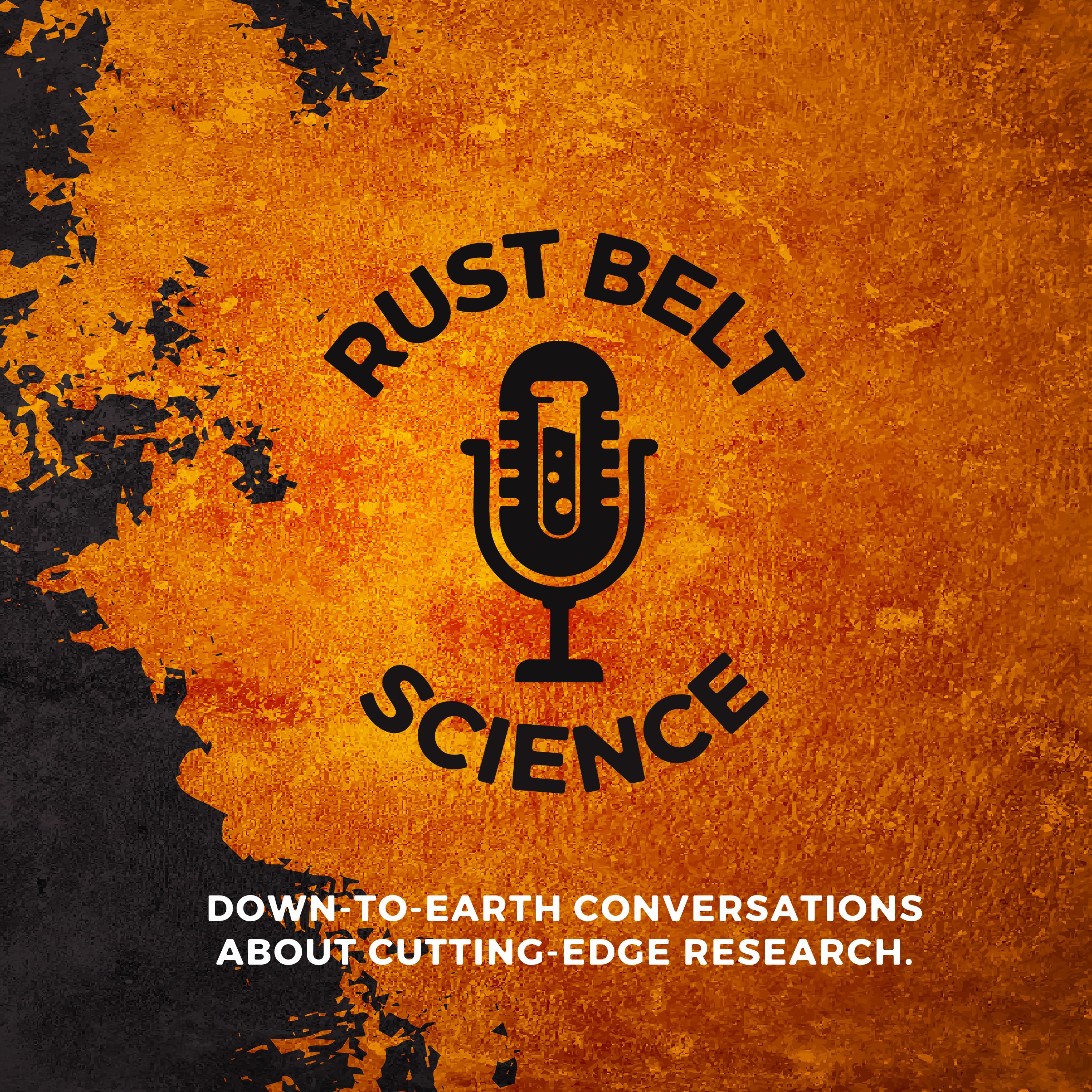 Rust Belt ScienceEnergy, Electrons, and Epiphanies: A Conversation with Dr. Adam Jaffee.2025-06-161h 00
Rust Belt ScienceEnergy, Electrons, and Epiphanies: A Conversation with Dr. Adam Jaffee.2025-06-161h 00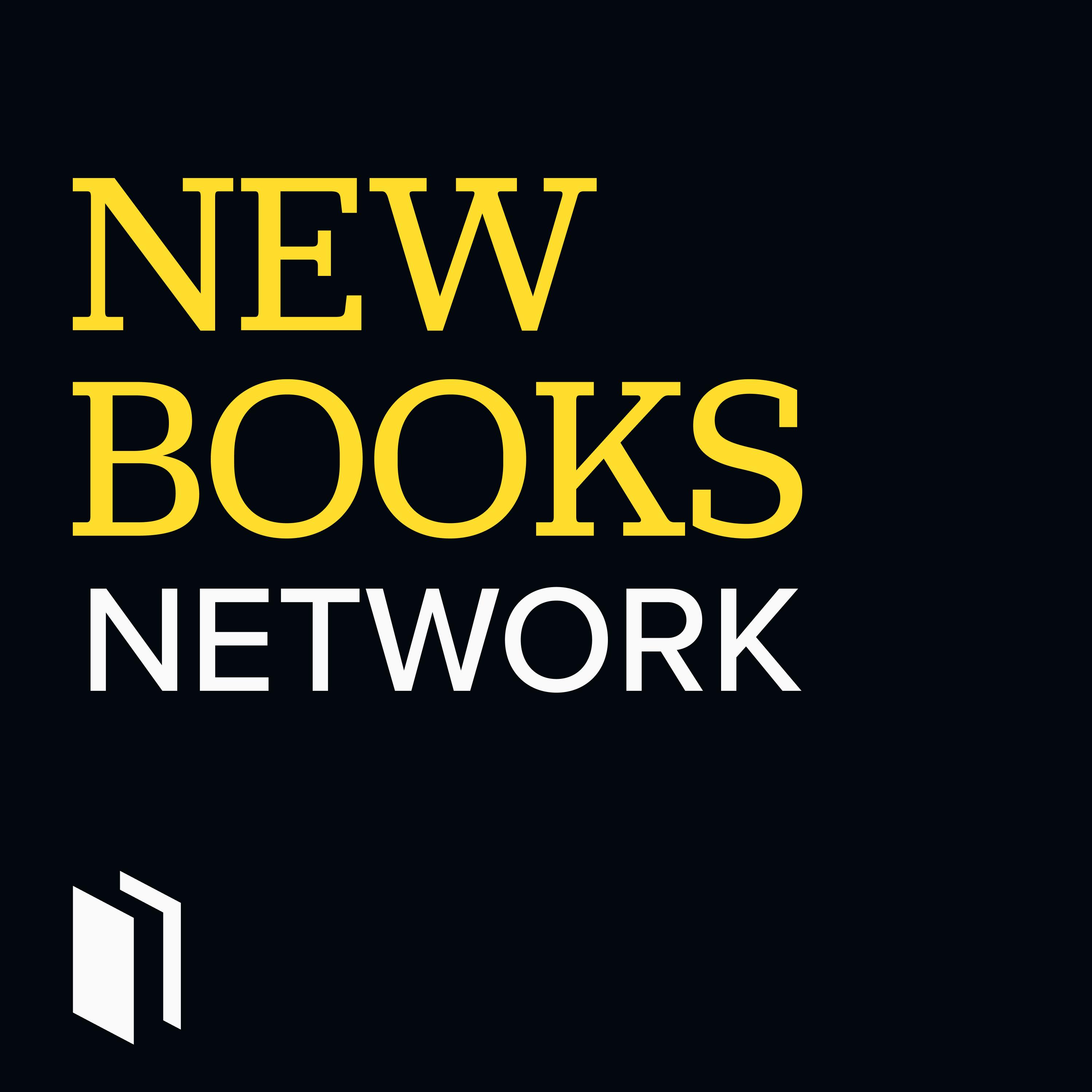 New Books NetworkMaggie M. Fink and Shahir S. Rizk, "The Color of North: The Molecular Language of Proteins and the Future of Life" (Belknap Press, 2025)An awe-inspiring journey into the world of proteins--how they shape life, and their remarkable potential to heal our bodies and our planet.
Each fall, a robin begins the long trek north from Gibraltar to her summer home in Central Europe. Nestled deep in her optic nerve, a tiny protein turns a lone electron into a compass, allowing her to see north in colors we can only dream of perceiving.
Taking us beyond the confines of our own experiences, The Color of North: The Molecular Language of Proteins and the Future of Life (Belknap Press, 2025) traverses the king...2025-06-1633 min
New Books NetworkMaggie M. Fink and Shahir S. Rizk, "The Color of North: The Molecular Language of Proteins and the Future of Life" (Belknap Press, 2025)An awe-inspiring journey into the world of proteins--how they shape life, and their remarkable potential to heal our bodies and our planet.
Each fall, a robin begins the long trek north from Gibraltar to her summer home in Central Europe. Nestled deep in her optic nerve, a tiny protein turns a lone electron into a compass, allowing her to see north in colors we can only dream of perceiving.
Taking us beyond the confines of our own experiences, The Color of North: The Molecular Language of Proteins and the Future of Life (Belknap Press, 2025) traverses the king...2025-06-1633 min New Books in Biology and EvolutionMaggie M. Fink and Shahir S. Rizk, "The Color of North: The Molecular Language of Proteins and the Future of Life" (Belknap Press, 2025)An awe-inspiring journey into the world of proteins--how they shape life, and their remarkable potential to heal our bodies and our planet.
Each fall, a robin begins the long trek north from Gibraltar to her summer home in Central Europe. Nestled deep in her optic nerve, a tiny protein turns a lone electron into a compass, allowing her to see north in colors we can only dream of perceiving.
Taking us beyond the confines of our own experiences, The Color of North: The Molecular Language of Proteins and the Future of Life (Belknap Press, 2025) traverses the king...2025-06-1633 min
New Books in Biology and EvolutionMaggie M. Fink and Shahir S. Rizk, "The Color of North: The Molecular Language of Proteins and the Future of Life" (Belknap Press, 2025)An awe-inspiring journey into the world of proteins--how they shape life, and their remarkable potential to heal our bodies and our planet.
Each fall, a robin begins the long trek north from Gibraltar to her summer home in Central Europe. Nestled deep in her optic nerve, a tiny protein turns a lone electron into a compass, allowing her to see north in colors we can only dream of perceiving.
Taking us beyond the confines of our own experiences, The Color of North: The Molecular Language of Proteins and the Future of Life (Belknap Press, 2025) traverses the king...2025-06-1633 min New Books in ScienceMaggie M. Fink and Shahir S. Rizk, "The Color of North: The Molecular Language of Proteins and the Future of Life" (Belknap Press, 2025)An awe-inspiring journey into the world of proteins--how they shape life, and their remarkable potential to heal our bodies and our planet.
Each fall, a robin begins the long trek north from Gibraltar to her summer home in Central Europe. Nestled deep in her optic nerve, a tiny protein turns a lone electron into a compass, allowing her to see north in colors we can only dream of perceiving.
Taking us beyond the confines of our own experiences, The Color of North: The Molecular Language of Proteins and the Future of Life (Belknap Press, 2025) traverses the king...2025-06-1633 min
New Books in ScienceMaggie M. Fink and Shahir S. Rizk, "The Color of North: The Molecular Language of Proteins and the Future of Life" (Belknap Press, 2025)An awe-inspiring journey into the world of proteins--how they shape life, and their remarkable potential to heal our bodies and our planet.
Each fall, a robin begins the long trek north from Gibraltar to her summer home in Central Europe. Nestled deep in her optic nerve, a tiny protein turns a lone electron into a compass, allowing her to see north in colors we can only dream of perceiving.
Taking us beyond the confines of our own experiences, The Color of North: The Molecular Language of Proteins and the Future of Life (Belknap Press, 2025) traverses the king...2025-06-1633 min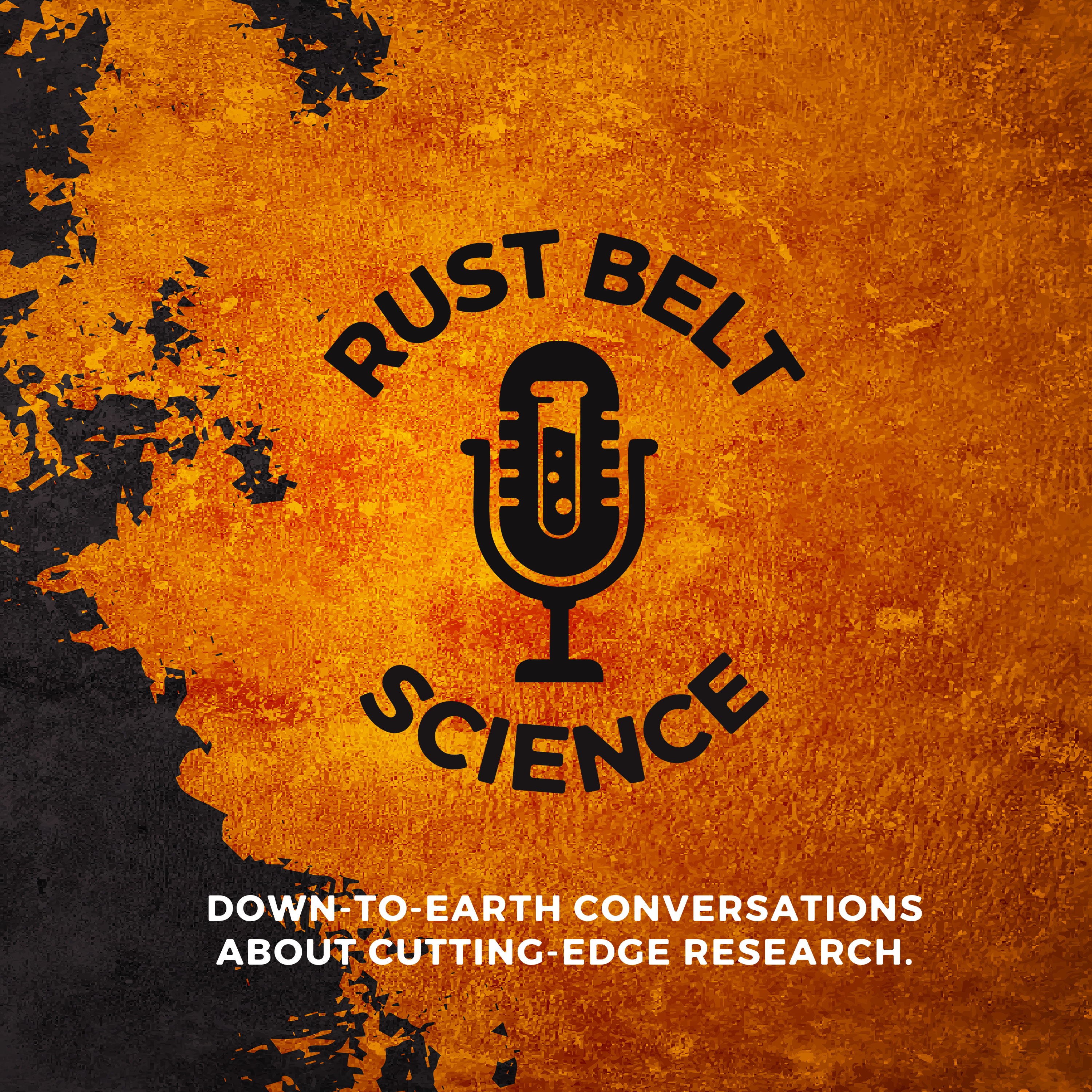 Rust Belt ScienceMalaria, Monkeys, and Medicine: Dr. Lee Haines ReturnsIn this episode of Rust Belt Science, we sit down with Dr. Lee Haines to explore the fascinating world of malaria research. Dr. Haines walks us through her recent paper on repurposing existing drugs to combat malaria—an approach that could fast-track new treatments in the face of rising resistance. We also dive into her unexpected fieldwork with monkey populations and what primate behavior can teach us about disease transmission and control. From the lab bench to the jungle canopy, this is science at its most adventurous and urgent.2025-06-051h 22
Rust Belt ScienceMalaria, Monkeys, and Medicine: Dr. Lee Haines ReturnsIn this episode of Rust Belt Science, we sit down with Dr. Lee Haines to explore the fascinating world of malaria research. Dr. Haines walks us through her recent paper on repurposing existing drugs to combat malaria—an approach that could fast-track new treatments in the face of rising resistance. We also dive into her unexpected fieldwork with monkey populations and what primate behavior can teach us about disease transmission and control. From the lab bench to the jungle canopy, this is science at its most adventurous and urgent.2025-06-051h 22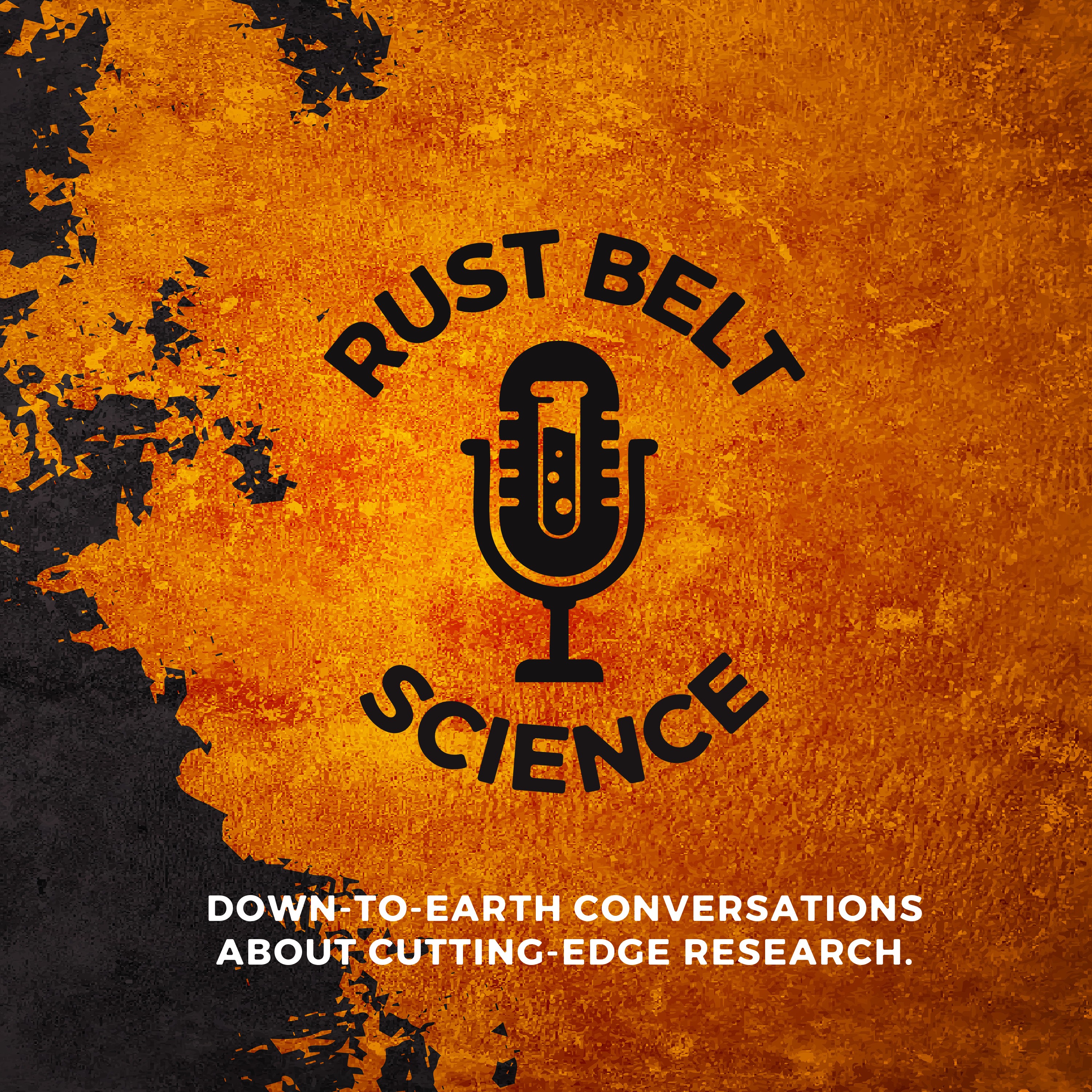 Rust Belt ScienceRenaissance Science: Conversing across disciplines to inspire wonder and discovery: An Interview with Dr. Louis MugliaIn this episode of Rust Belt Science, we sit down with Dr. Louis Muglia—physician-scientist, visionary leader, and passionate advocate for interdisciplinary research. Together, we explore how the spirit of Renaissance thinking—where science, art, philosophy, and curiosity intersect—can help reignite wonder and push the boundaries of modern discovery.Dr. Muglia shares insights from his own cross-disciplinary journey, discusses the value of integrating diverse fields to solve complex problems, and reflects on how embracing a broader view of science can empower communities, This conversation is an invitation to reimagine how we think, learn, and innovate. 2025-05-2559 min
Rust Belt ScienceRenaissance Science: Conversing across disciplines to inspire wonder and discovery: An Interview with Dr. Louis MugliaIn this episode of Rust Belt Science, we sit down with Dr. Louis Muglia—physician-scientist, visionary leader, and passionate advocate for interdisciplinary research. Together, we explore how the spirit of Renaissance thinking—where science, art, philosophy, and curiosity intersect—can help reignite wonder and push the boundaries of modern discovery.Dr. Muglia shares insights from his own cross-disciplinary journey, discusses the value of integrating diverse fields to solve complex problems, and reflects on how embracing a broader view of science can empower communities, This conversation is an invitation to reimagine how we think, learn, and innovate. 2025-05-2559 min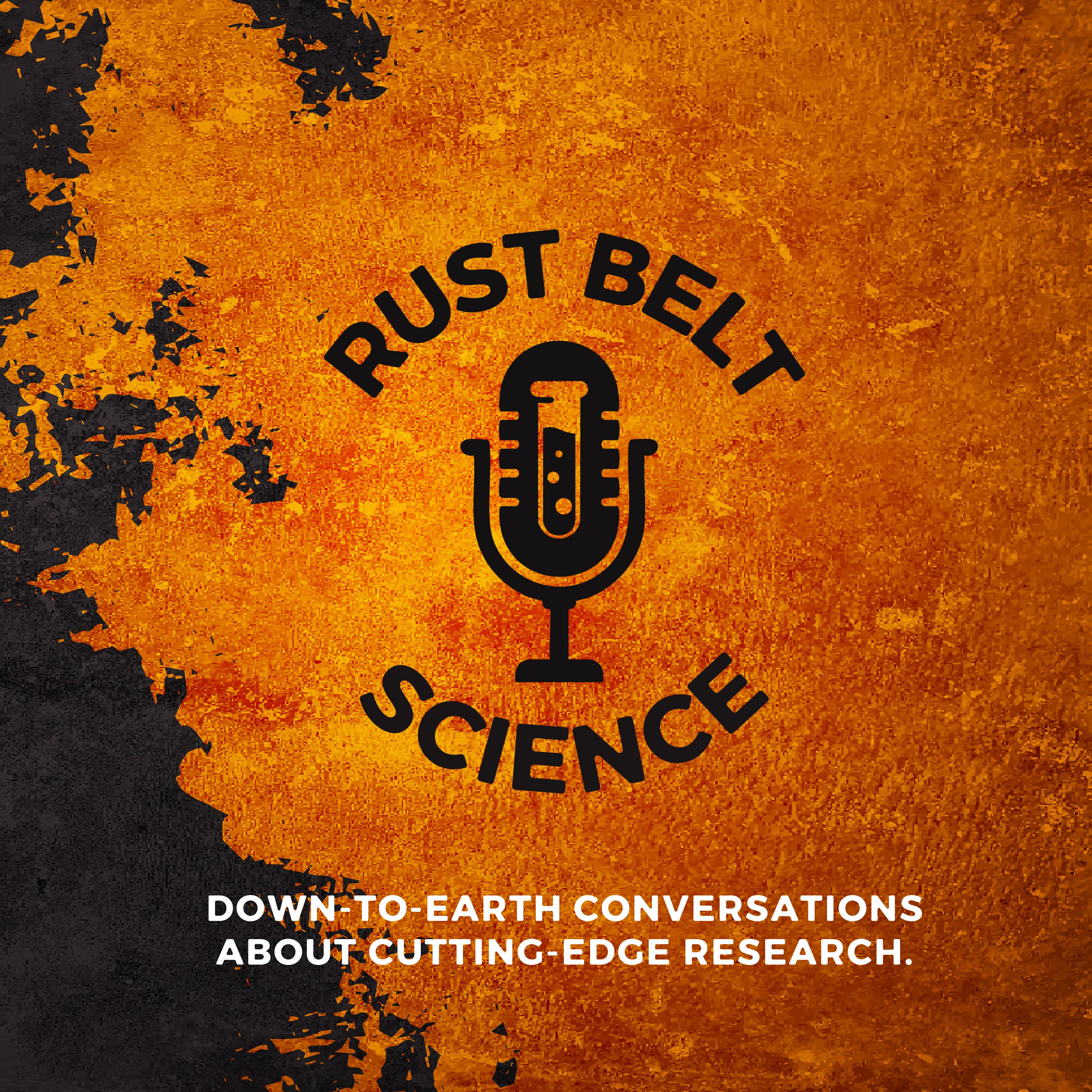 Rust Belt ScienceThe Color of North: The Molecular Language of Proteins and the Future of LifeWhat if the future of life could be written—not in words, but in proteins? In this episode of Rust Belt Science, authors Shahir Rizk and Maggie Fink talk about their new book, The Color of North: The Molecular Language of Proteins and the Future of Life. Together, they unpack how proteins act as a hidden code shaping everything from the cells in our bodies to the possibilities of synthetic biology.We dive into how their collaboration blends hard science with human narrative, why the language of proteins matters now more than ever, and how this molecular pe...2025-05-131h 07
Rust Belt ScienceThe Color of North: The Molecular Language of Proteins and the Future of LifeWhat if the future of life could be written—not in words, but in proteins? In this episode of Rust Belt Science, authors Shahir Rizk and Maggie Fink talk about their new book, The Color of North: The Molecular Language of Proteins and the Future of Life. Together, they unpack how proteins act as a hidden code shaping everything from the cells in our bodies to the possibilities of synthetic biology.We dive into how their collaboration blends hard science with human narrative, why the language of proteins matters now more than ever, and how this molecular pe...2025-05-131h 07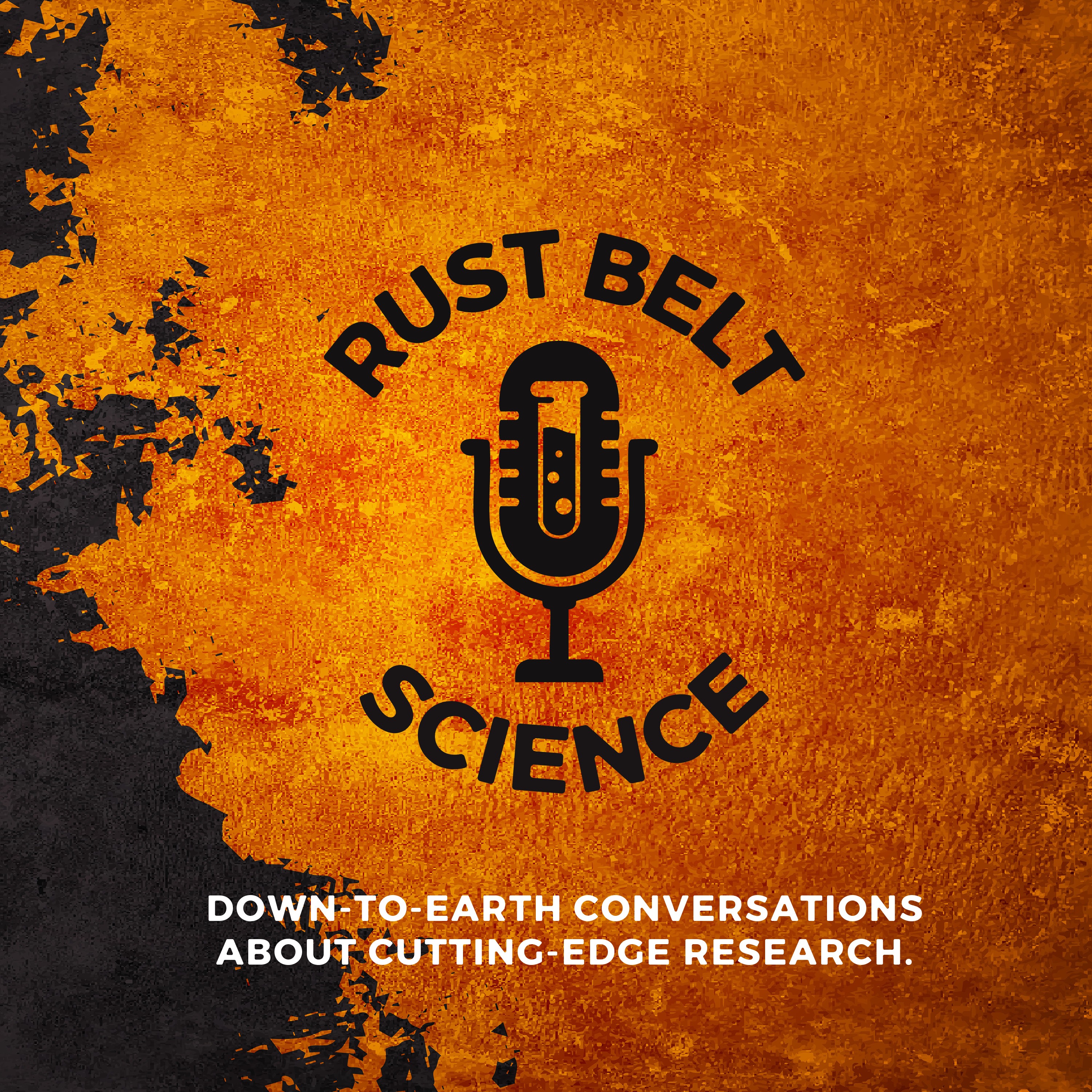 Rust Belt ScienceFrom Hydrogen to Humanity: Tracing Cosmic Chemistry with Roman GerasimovIn this episode of Rust Belt Science, we journey into the deep cosmos with astronomer Roman Gerasimov to explore how ancient stars hold the secrets of the universe's past. Gerasimov, whose work focuses on the chemical composition of some of the oldest known stars, explains how these stellar relics act like time capsules—preserving the fingerprints of cosmic events from billions of years ago. We discuss what the early universe was made of, how heavier elements formed, and why the Milky Way’s outer halo might be the key to understanding galaxy formation. From brown dwarfs to stellar archaeology, this...2025-05-081h 13
Rust Belt ScienceFrom Hydrogen to Humanity: Tracing Cosmic Chemistry with Roman GerasimovIn this episode of Rust Belt Science, we journey into the deep cosmos with astronomer Roman Gerasimov to explore how ancient stars hold the secrets of the universe's past. Gerasimov, whose work focuses on the chemical composition of some of the oldest known stars, explains how these stellar relics act like time capsules—preserving the fingerprints of cosmic events from billions of years ago. We discuss what the early universe was made of, how heavier elements formed, and why the Milky Way’s outer halo might be the key to understanding galaxy formation. From brown dwarfs to stellar archaeology, this...2025-05-081h 13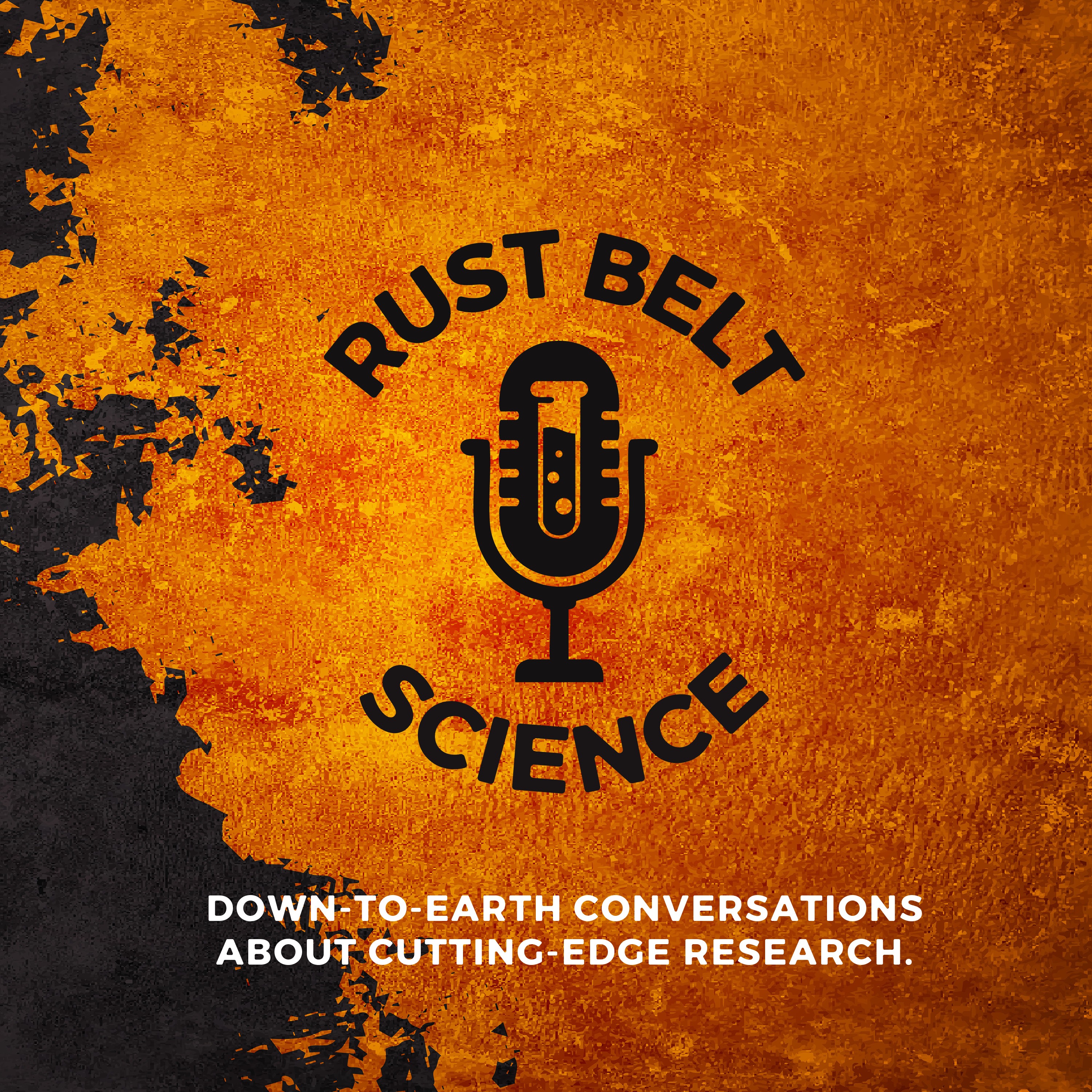 Rust Belt ScienceScience, Self-Doubt, and the Imposter Within: A Conversation About Impostor SyndromeIn this episode of Rust Belt Science, we tackle a topic that hits close to home for many in the scientific community: impostor syndrome. From graduate students to seasoned researchers, feelings of self-doubt and the fear of being “found out” are surprisingly common in science. We explore the psychological roots of impostor syndrome, how it manifests in academic and research environments, and what individuals and institutions can do to create healthier, more supportive spaces. Tune in for a candid conversation, personal stories, and insights on overcoming the inner critic and reclaiming confidence in your work.2025-05-011h 09
Rust Belt ScienceScience, Self-Doubt, and the Imposter Within: A Conversation About Impostor SyndromeIn this episode of Rust Belt Science, we tackle a topic that hits close to home for many in the scientific community: impostor syndrome. From graduate students to seasoned researchers, feelings of self-doubt and the fear of being “found out” are surprisingly common in science. We explore the psychological roots of impostor syndrome, how it manifests in academic and research environments, and what individuals and institutions can do to create healthier, more supportive spaces. Tune in for a candid conversation, personal stories, and insights on overcoming the inner critic and reclaiming confidence in your work.2025-05-011h 09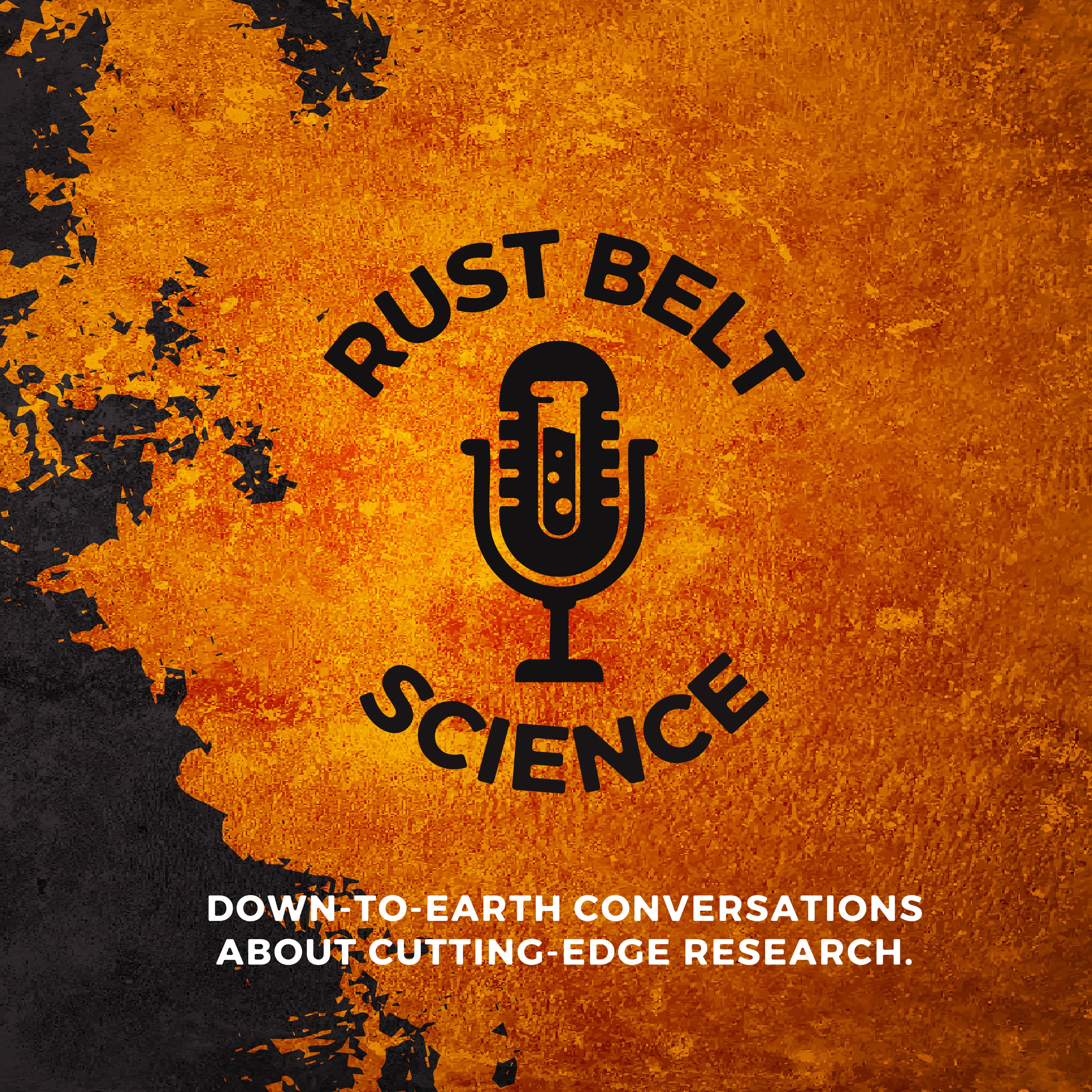 Rust Belt ScienceParasites, Cats, and the Importance of Science Communication with Dr. Bill SullivanIn this episode of Rust Belt Science, we sit down with Dr. Bill Sullivan — scientist, author, and professor — to explore the strange and fascinating world of parasites, including the infamous Toxoplasma gondii, and how it may influence behavior in humans and animals alike. Dr. Sullivan sheds light on the complex relationship between science, storytelling, and public understanding. We discuss how his work bridges hard research with accessible communication, and why making science understandable — and even entertaining — is more crucial than ever. Whether you're a cat owner, a science enthusiast, or just curious about how microscopic organisms can impact the brain, t...2025-04-241h 01
Rust Belt ScienceParasites, Cats, and the Importance of Science Communication with Dr. Bill SullivanIn this episode of Rust Belt Science, we sit down with Dr. Bill Sullivan — scientist, author, and professor — to explore the strange and fascinating world of parasites, including the infamous Toxoplasma gondii, and how it may influence behavior in humans and animals alike. Dr. Sullivan sheds light on the complex relationship between science, storytelling, and public understanding. We discuss how his work bridges hard research with accessible communication, and why making science understandable — and even entertaining — is more crucial than ever. Whether you're a cat owner, a science enthusiast, or just curious about how microscopic organisms can impact the brain, t...2025-04-241h 01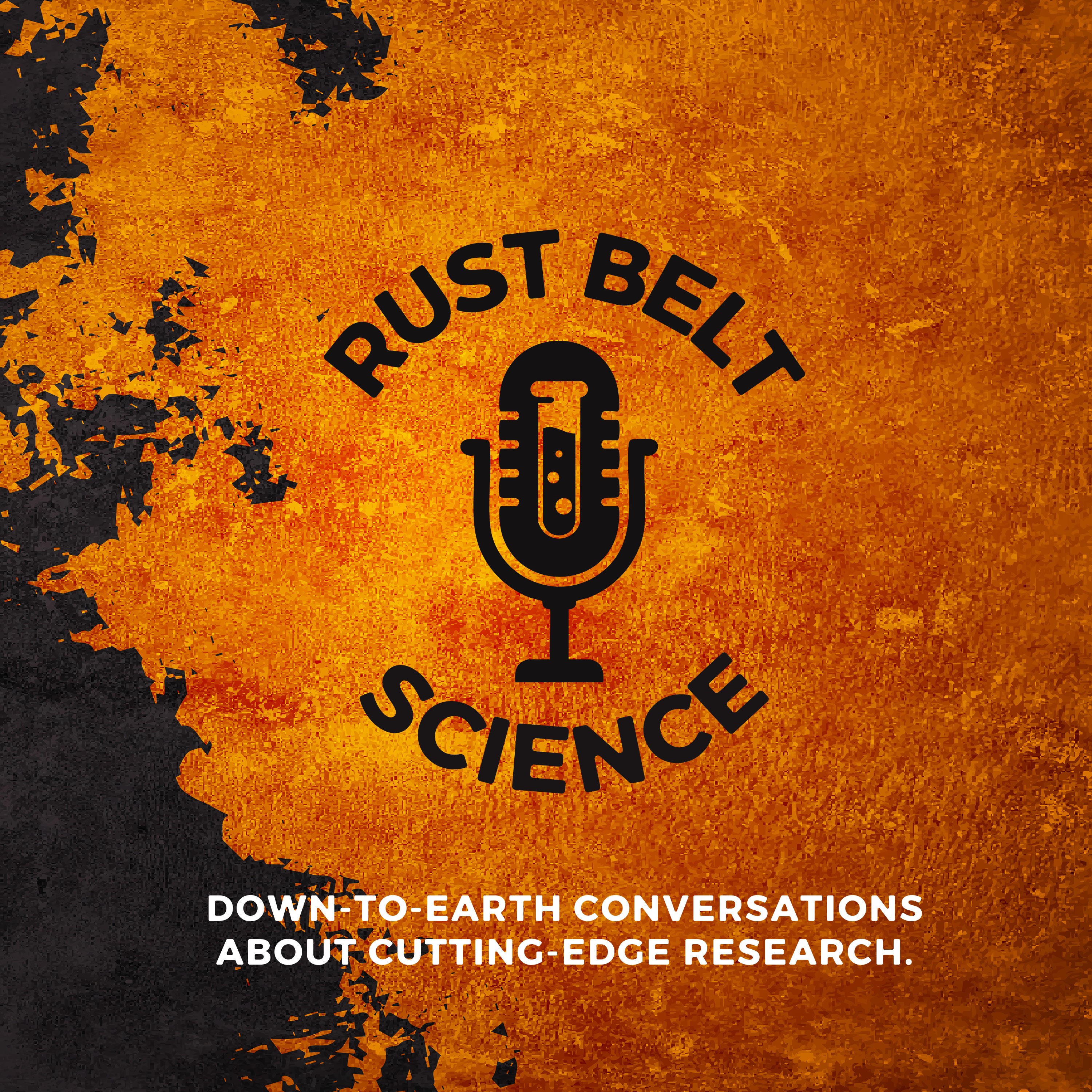 Rust Belt ScienceThe Moon Landing, Elvis Presley, and Flat Earthers: The Science of Why we Believe in Conspiracy Theories Part 2.In this episode of Rust Belt Science, we embark on the first part of a deep dive into the psychology and science behind why people believe in conspiracy theories. Our focus spans some of the most iconic and enduring theories: the Moon landing, the life and death of Elvis Presley, and the beliefs of Flat Earthers. We explore how psychological predispositions, societal influences, and historical contexts mold our perceptions of reality and lead some to adopt alternative explanations for well-documented events.Throughout the discussion, we consider the impact of digital media and social networking in amplifying conspiracy...2025-04-1757 min
Rust Belt ScienceThe Moon Landing, Elvis Presley, and Flat Earthers: The Science of Why we Believe in Conspiracy Theories Part 2.In this episode of Rust Belt Science, we embark on the first part of a deep dive into the psychology and science behind why people believe in conspiracy theories. Our focus spans some of the most iconic and enduring theories: the Moon landing, the life and death of Elvis Presley, and the beliefs of Flat Earthers. We explore how psychological predispositions, societal influences, and historical contexts mold our perceptions of reality and lead some to adopt alternative explanations for well-documented events.Throughout the discussion, we consider the impact of digital media and social networking in amplifying conspiracy...2025-04-1757 min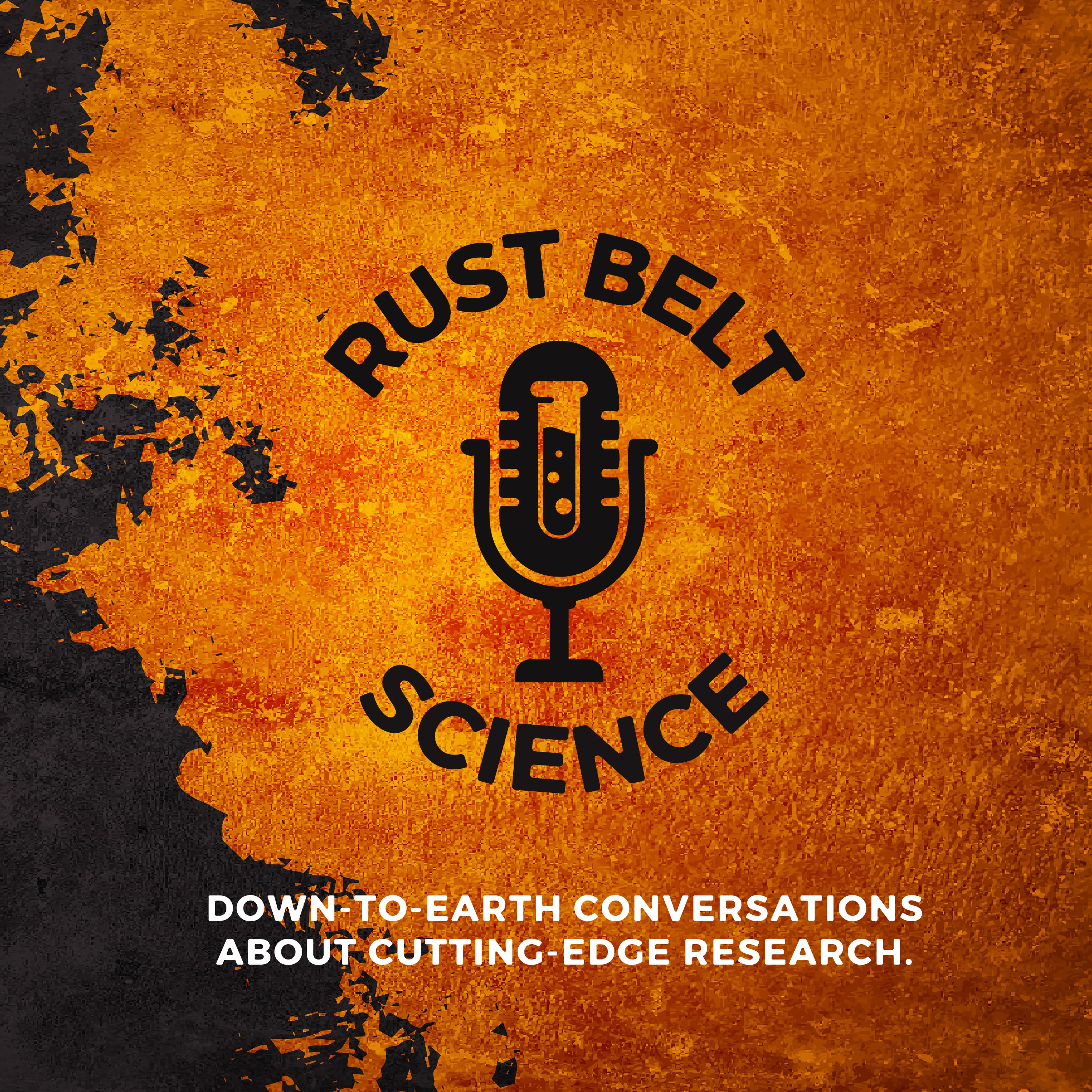 Rust Belt ScienceCould the Last of Us Really Happen with Dr. Felipe Santiago-TiradoIn this episode of Rust Belt Science, we delve into the eerie and thought-provoking world of "The Last of Us," exploring whether the events depicted in this popular video game and TV series could transition from fiction to reality. Joining us is Dr. Felipe Santiago-Tirado, an expert in fungal pathogens and Assistant Professor of Biological Sciences at the University of Notre Dame.Dr. Santiago-Tirado breaks down the science behind the game’s central premise: a fungal infection that turns humans into zombie-like creatures. We discuss the real-life Cordyceps fungus, known for its ability to control the behavior of...2025-04-101h 12
Rust Belt ScienceCould the Last of Us Really Happen with Dr. Felipe Santiago-TiradoIn this episode of Rust Belt Science, we delve into the eerie and thought-provoking world of "The Last of Us," exploring whether the events depicted in this popular video game and TV series could transition from fiction to reality. Joining us is Dr. Felipe Santiago-Tirado, an expert in fungal pathogens and Assistant Professor of Biological Sciences at the University of Notre Dame.Dr. Santiago-Tirado breaks down the science behind the game’s central premise: a fungal infection that turns humans into zombie-like creatures. We discuss the real-life Cordyceps fungus, known for its ability to control the behavior of...2025-04-101h 12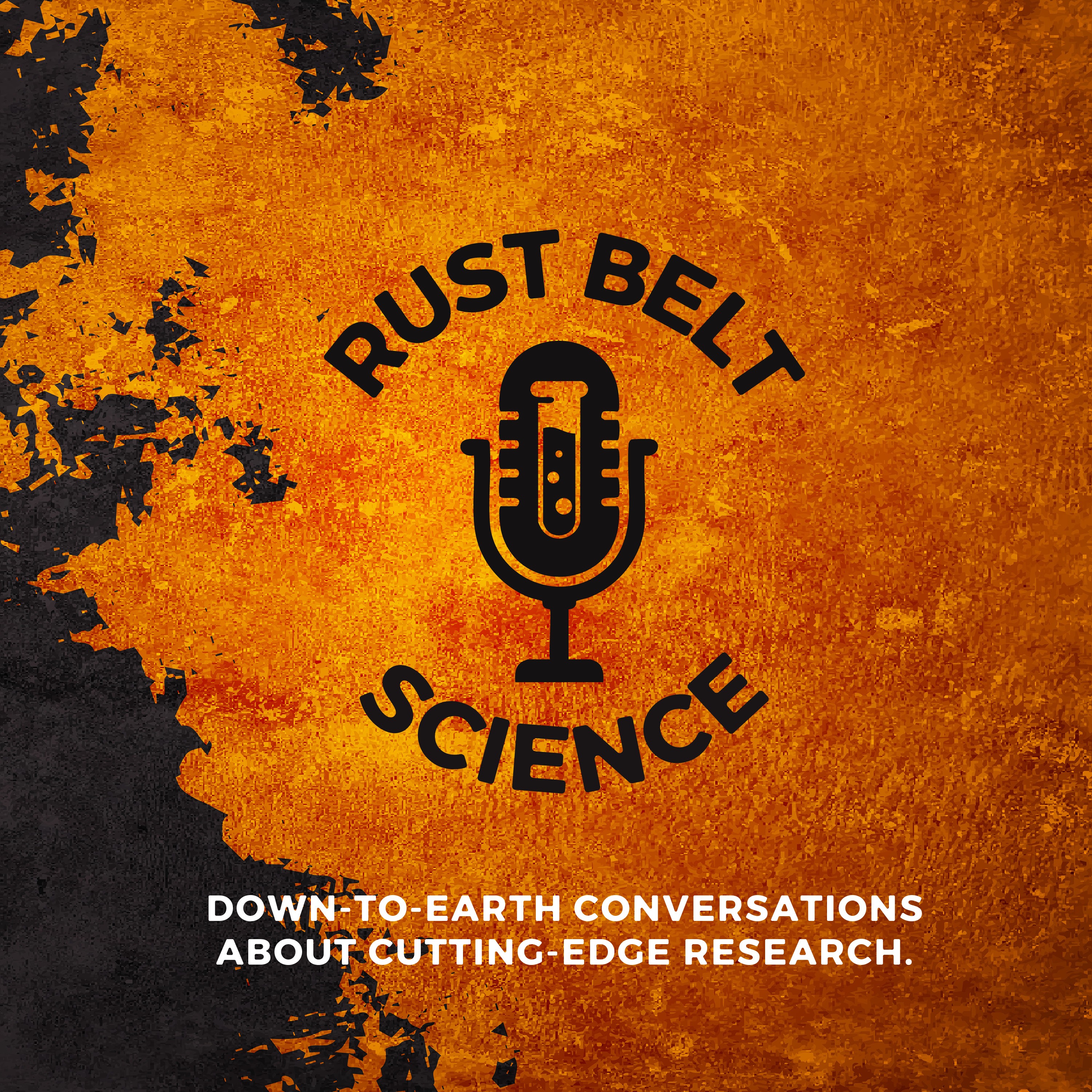 Rust Belt ScienceThe Moon Landing, Elvis Presley, and Flat Earthers: The Science of Why we Believe in Conspiracy Theories Part 1In this episode of Rust Belt Science, we embark on the first part of a deep dive into the psychology and science behind why people believe in conspiracy theories. Our focus spans some of the most iconic and enduring theories: the Moon landing, the life and death of Elvis Presley, and the beliefs of Flat Earthers. We explore how psychological predispositions, societal influences, and historical contexts mold our perceptions of reality and lead some to adopt alternative explanations for well-documented events. Throughout the discussion, we consider the impact of digital media and social networking in amplifying conspiracy...2025-04-0357 min
Rust Belt ScienceThe Moon Landing, Elvis Presley, and Flat Earthers: The Science of Why we Believe in Conspiracy Theories Part 1In this episode of Rust Belt Science, we embark on the first part of a deep dive into the psychology and science behind why people believe in conspiracy theories. Our focus spans some of the most iconic and enduring theories: the Moon landing, the life and death of Elvis Presley, and the beliefs of Flat Earthers. We explore how psychological predispositions, societal influences, and historical contexts mold our perceptions of reality and lead some to adopt alternative explanations for well-documented events. Throughout the discussion, we consider the impact of digital media and social networking in amplifying conspiracy...2025-04-0357 min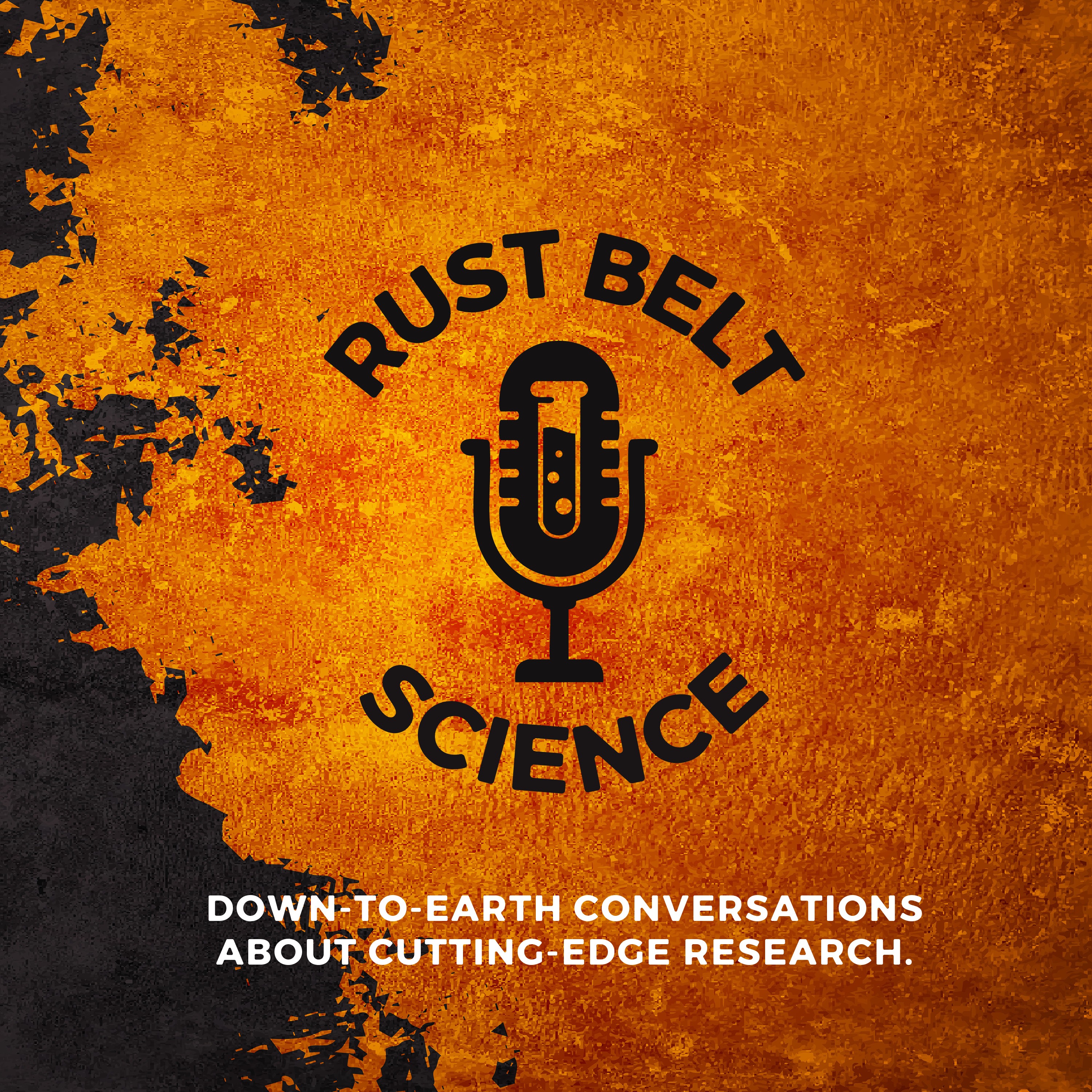 Rust Belt SciencePurple Aliens, Astrobiology, and Imagination with Dr. Ligia Coehlo.In this episode of Rust Belt Science, we sit down with Dr. Ligia Coelho, an esteemed astrobiologist from Cornell University, to explore the search for life beyond our planet. Dr. Coelho shares her expertise on the extreme environments of Earth that serve as models for extraterrestrial habitability, the latest findings from Mars and icy moons like Europa, and the technologies helping us detect biosignatures in deep space. We also discuss how research in astrobiology ties back to our own planet’s past, present, and future2025-03-2759 min
Rust Belt SciencePurple Aliens, Astrobiology, and Imagination with Dr. Ligia Coehlo.In this episode of Rust Belt Science, we sit down with Dr. Ligia Coelho, an esteemed astrobiologist from Cornell University, to explore the search for life beyond our planet. Dr. Coelho shares her expertise on the extreme environments of Earth that serve as models for extraterrestrial habitability, the latest findings from Mars and icy moons like Europa, and the technologies helping us detect biosignatures in deep space. We also discuss how research in astrobiology ties back to our own planet’s past, present, and future2025-03-2759 min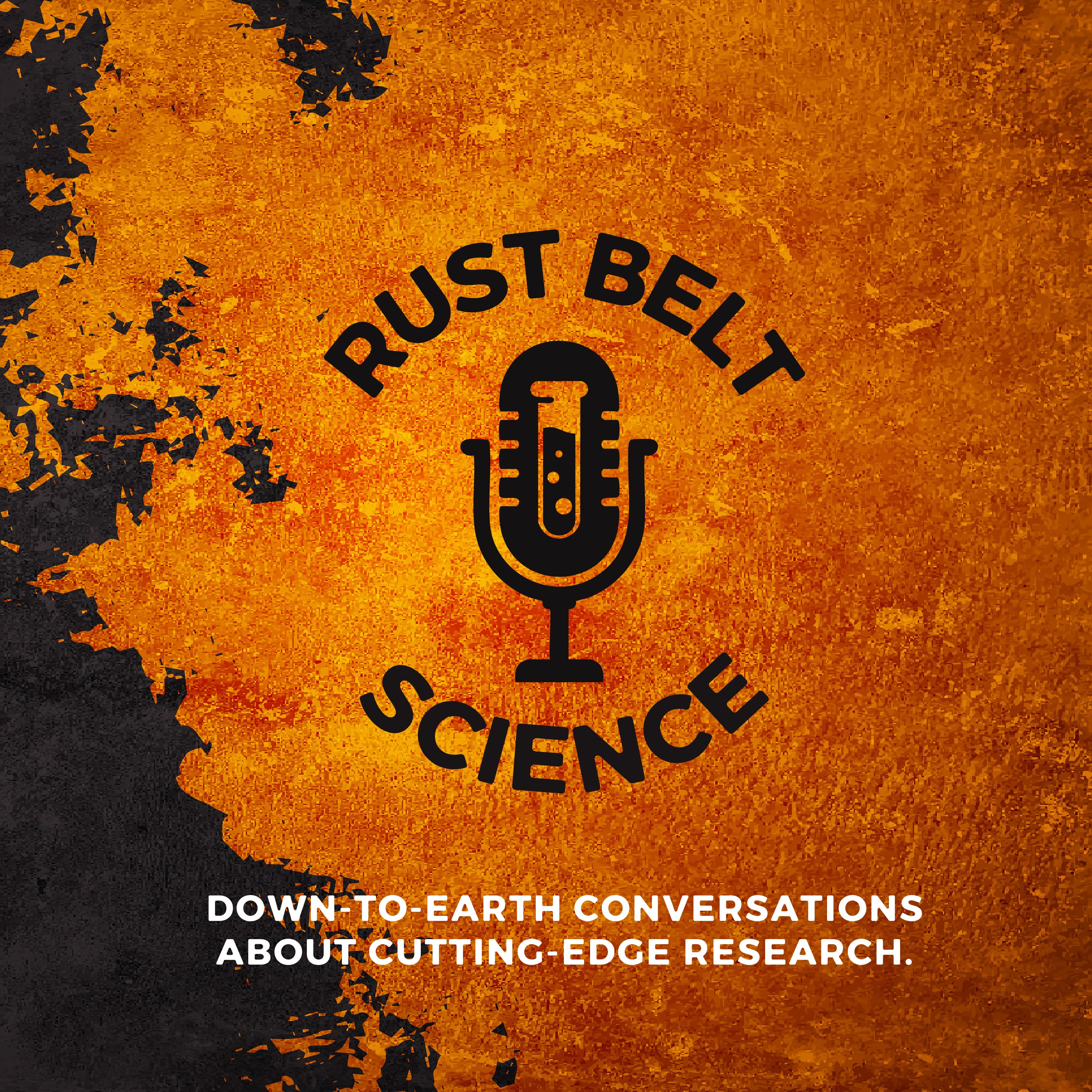 Rust Belt ScienceArt, Poetry, Chemistry and the Holistic Scientist with Dr. Bahram MoasserPoetry • Symmetry • Chance and entropy • The art of the unseen world of chemistry • Why scientists need art2025-03-201h 17
Rust Belt ScienceArt, Poetry, Chemistry and the Holistic Scientist with Dr. Bahram MoasserPoetry • Symmetry • Chance and entropy • The art of the unseen world of chemistry • Why scientists need art2025-03-201h 17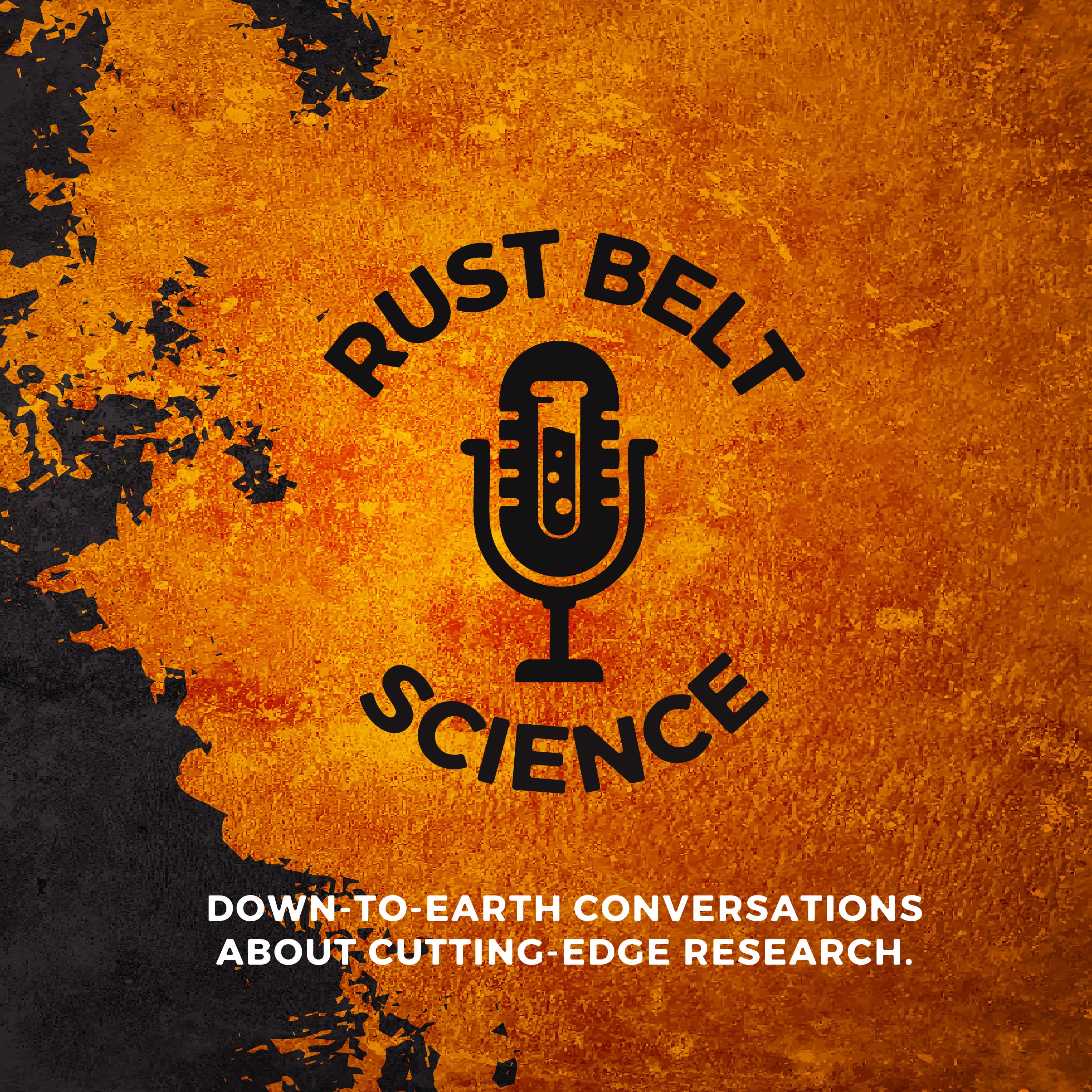 Rust Belt ScienceEntropy, Telescopes, and Aliens with Dr. Michelle ThallerWe talk to Dr. Michelle Thaller, former Assistant Director for Science Communication at NASA Goddard Space Flight Center to discuss the life cycle of stars, the miracle of being human, and the need for better science communication. 2025-03-1352 min
Rust Belt ScienceEntropy, Telescopes, and Aliens with Dr. Michelle ThallerWe talk to Dr. Michelle Thaller, former Assistant Director for Science Communication at NASA Goddard Space Flight Center to discuss the life cycle of stars, the miracle of being human, and the need for better science communication. 2025-03-1352 min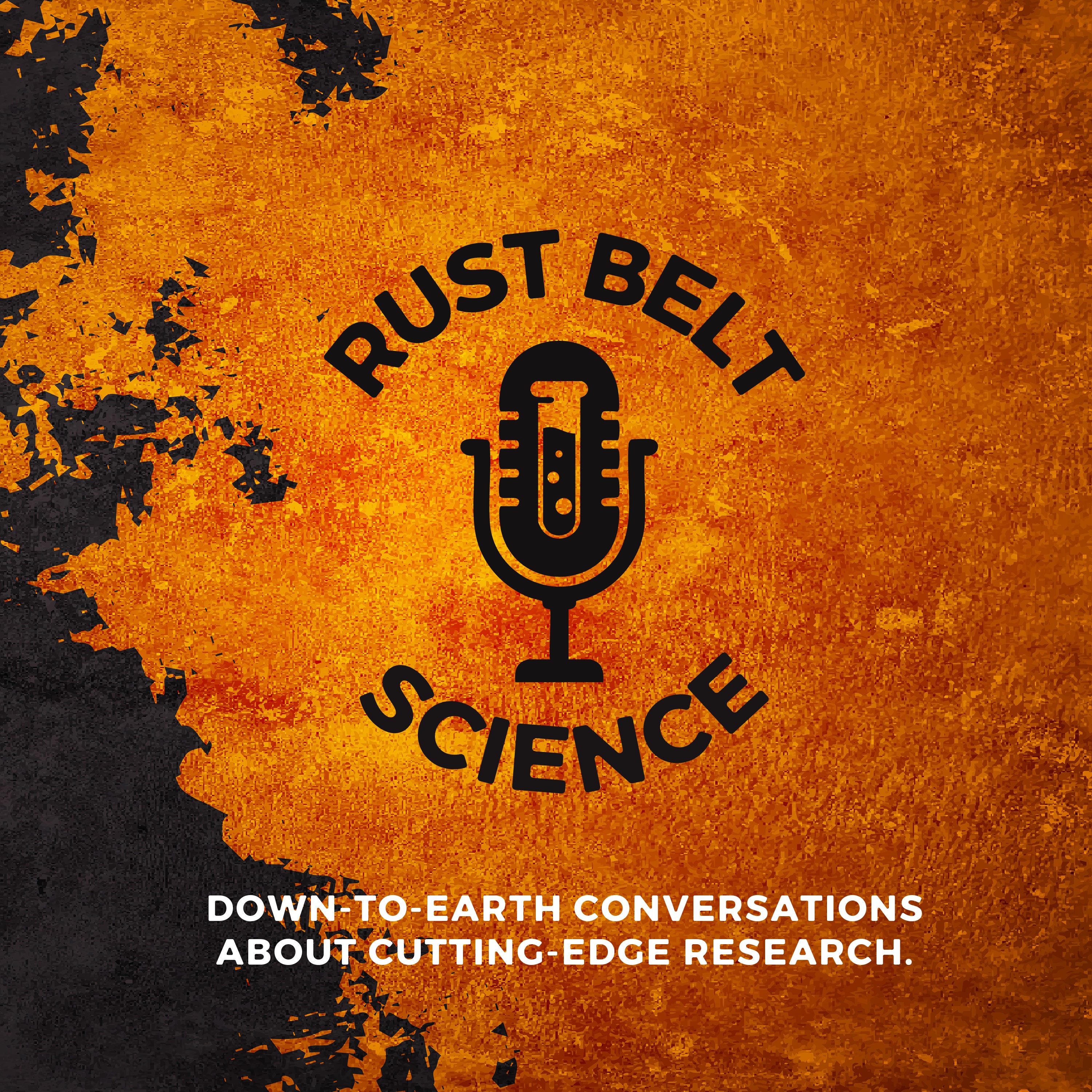 Rust Belt Science2024 Chemistry Nobel Prize Part 2: The Not-So-Good StuffFalse data • Retractions • A fall from grace • The pressure to do bad science2025-03-071h 04
Rust Belt Science2024 Chemistry Nobel Prize Part 2: The Not-So-Good StuffFalse data • Retractions • A fall from grace • The pressure to do bad science2025-03-071h 04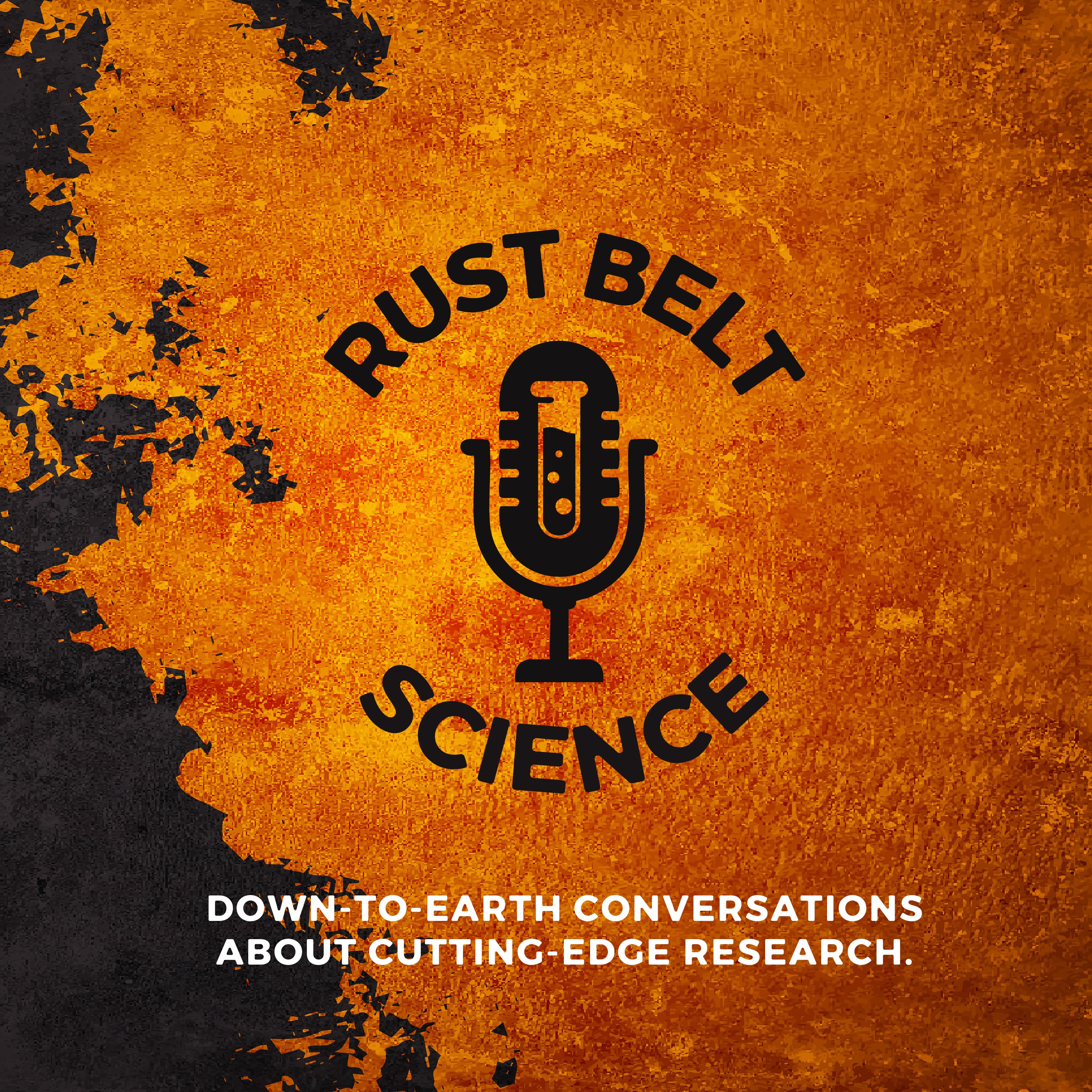 Rust Belt Science2024 Chemistry Nobel Prize Part 1: The Good StuffHow to fold into your own shape • AI solving a 100 year old problem • Making proteins that nature has never before seen2025-02-271h 10
Rust Belt Science2024 Chemistry Nobel Prize Part 1: The Good StuffHow to fold into your own shape • AI solving a 100 year old problem • Making proteins that nature has never before seen2025-02-271h 10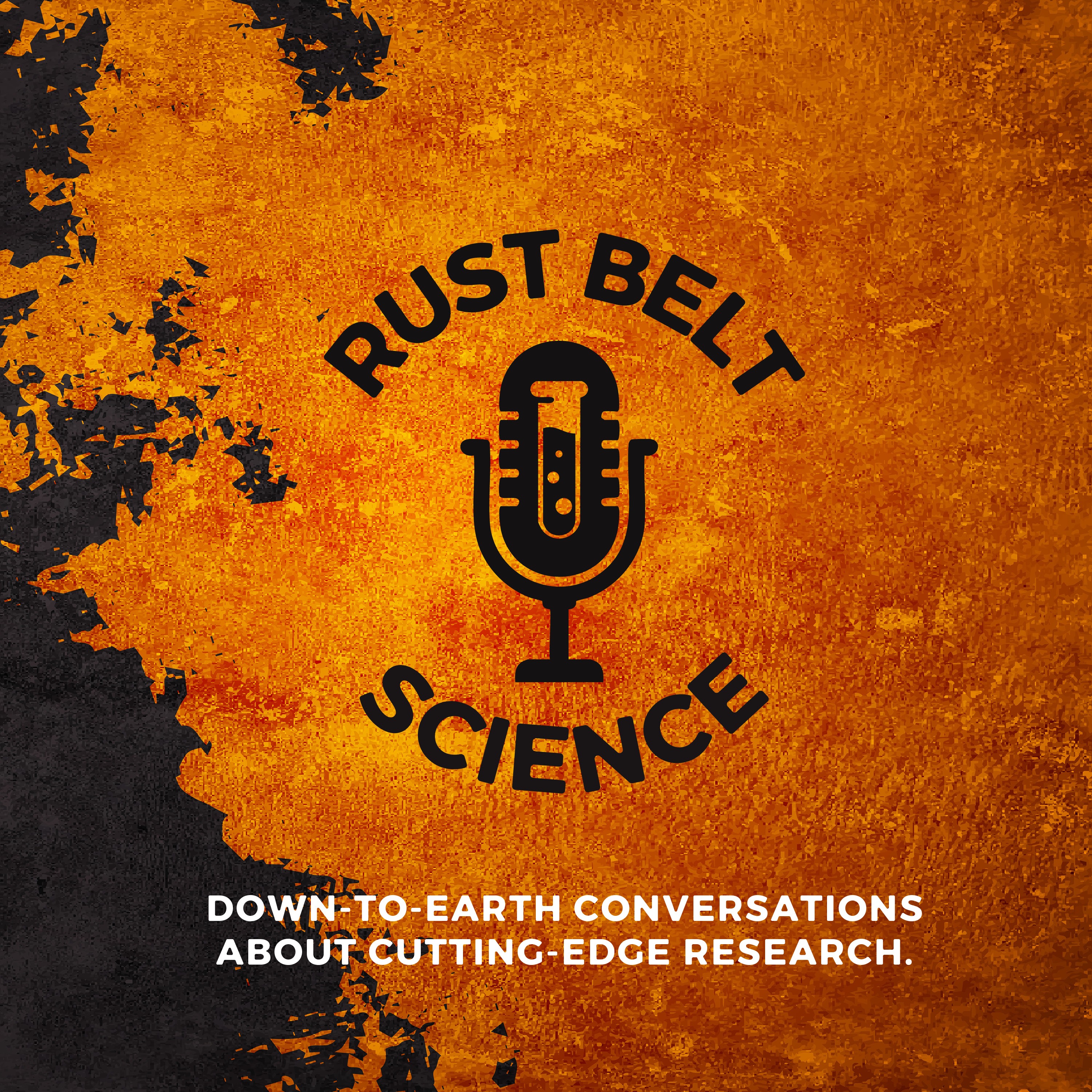 Rust Belt ScienceAll Things Insects with Lee HainesBugs navigating by the stars • Cicada (butt) fungus • Fireflies (or lightning bugs) • Sleeping sickness • Seeing through the eyes of the blind • The strongest creature in the world2025-02-131h 24
Rust Belt ScienceAll Things Insects with Lee HainesBugs navigating by the stars • Cicada (butt) fungus • Fireflies (or lightning bugs) • Sleeping sickness • Seeing through the eyes of the blind • The strongest creature in the world2025-02-131h 24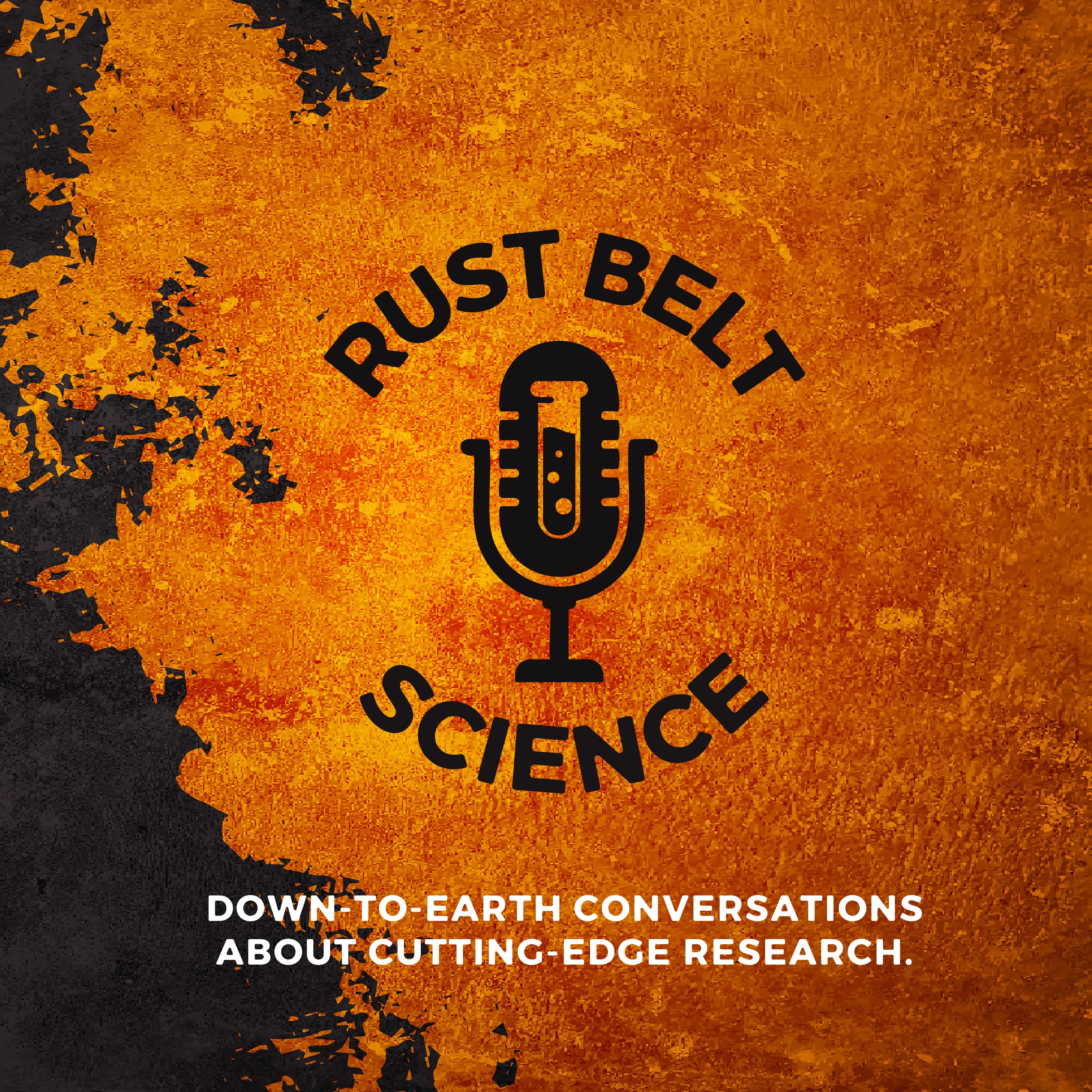 Rust Belt ScienceThe ecology of everything with Deb MarrOld-growth forests • Hugging 21,000 trees • The yucca’s inseparable friend • Our skin inhabitants and the immune system • Leave the Leaves! • Our Universe Revealed2025-01-2954 min
Rust Belt ScienceThe ecology of everything with Deb MarrOld-growth forests • Hugging 21,000 trees • The yucca’s inseparable friend • Our skin inhabitants and the immune system • Leave the Leaves! • Our Universe Revealed2025-01-2954 min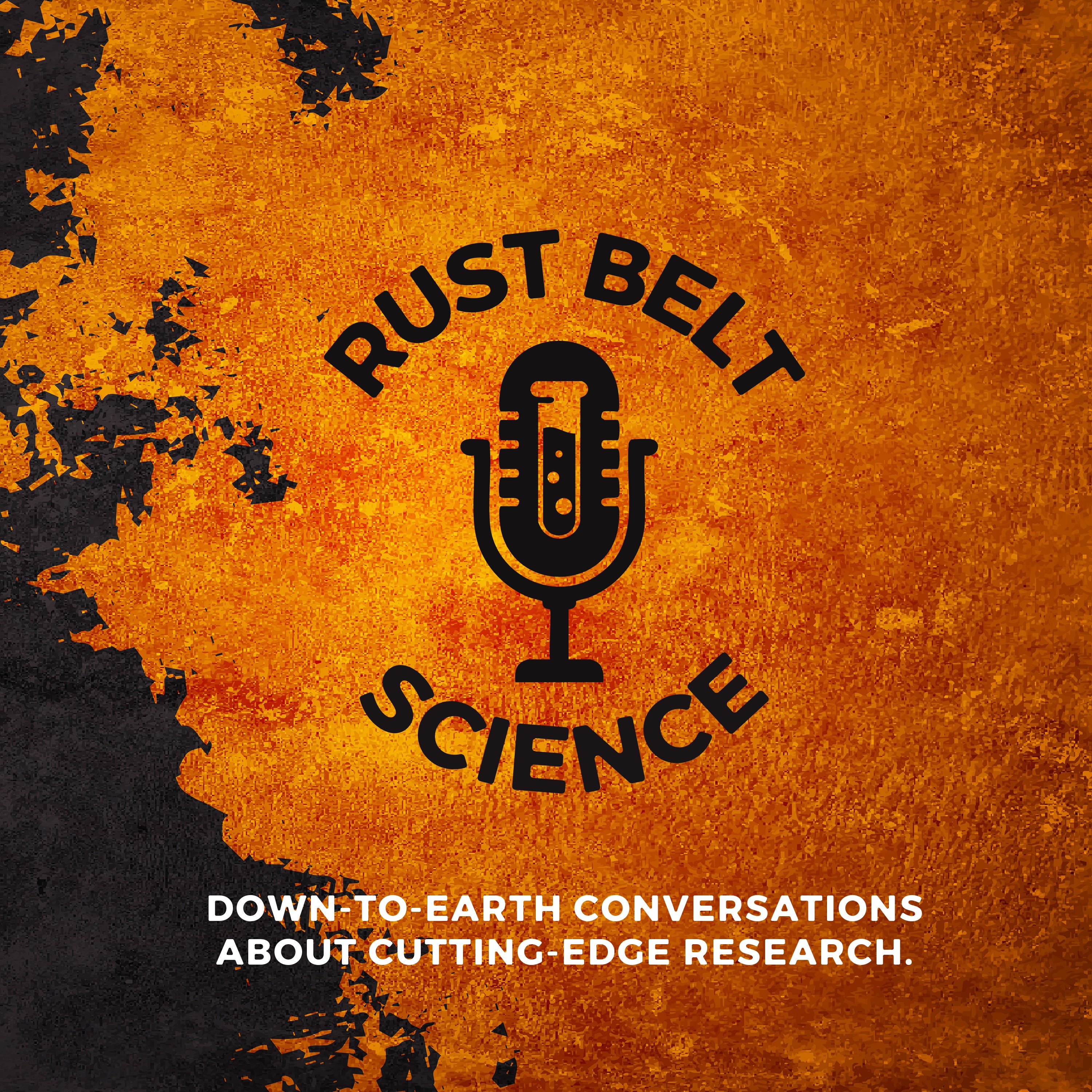 Rust Belt ScienceDo you have to be smart to do science?The struggle of making discoveries • Bacteria with personalities • Poop transplants • When scientists behave badly2025-01-091h 11
Rust Belt ScienceDo you have to be smart to do science?The struggle of making discoveries • Bacteria with personalities • Poop transplants • When scientists behave badly2025-01-091h 11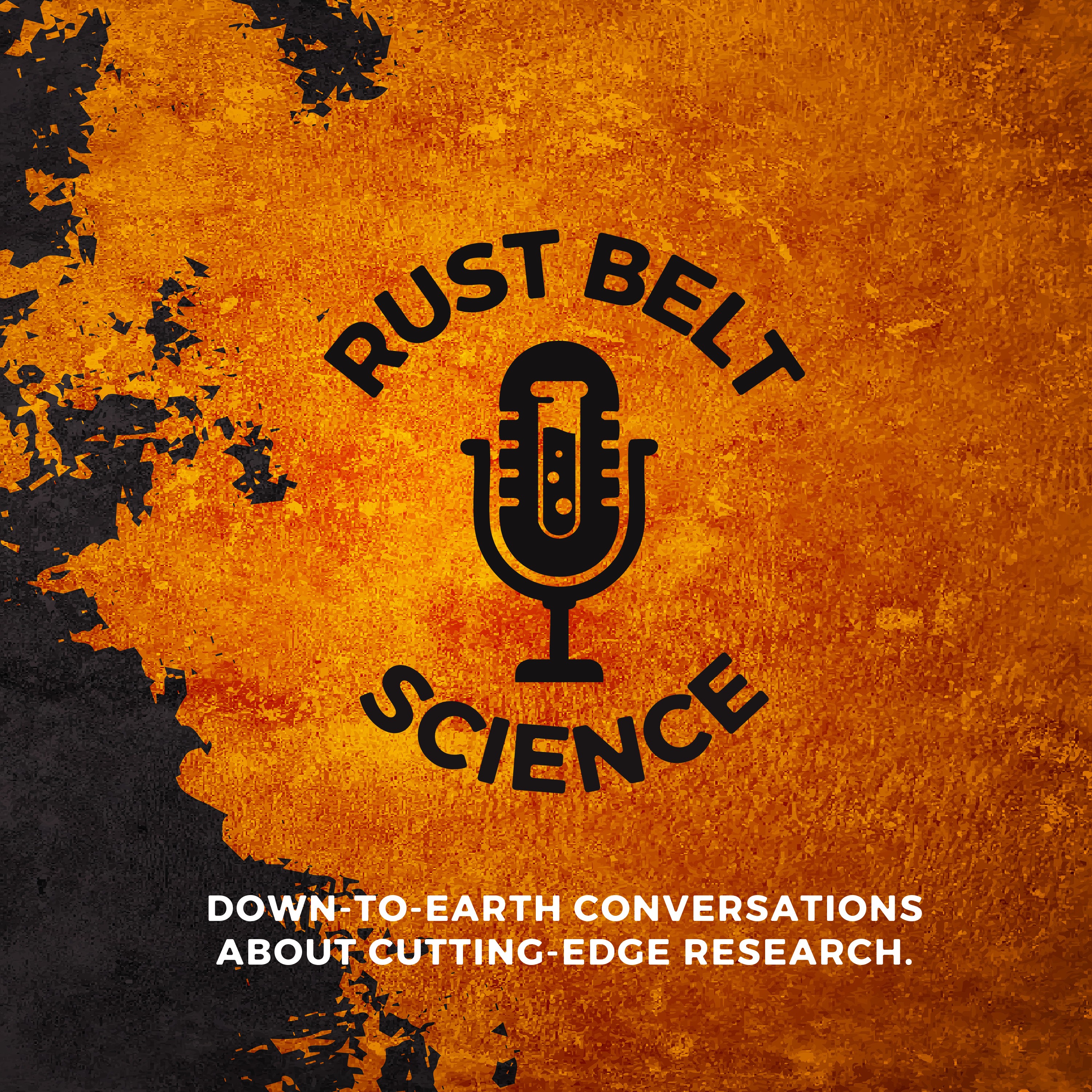 Rust Belt ScienceAI Weirdness with Janelle ShaneWill Robots take over the world? Why can’t AI learn to fold laundry? Does it help to be nice to our AI?2024-12-2758 min
Rust Belt ScienceAI Weirdness with Janelle ShaneWill Robots take over the world? Why can’t AI learn to fold laundry? Does it help to be nice to our AI?2024-12-2758 min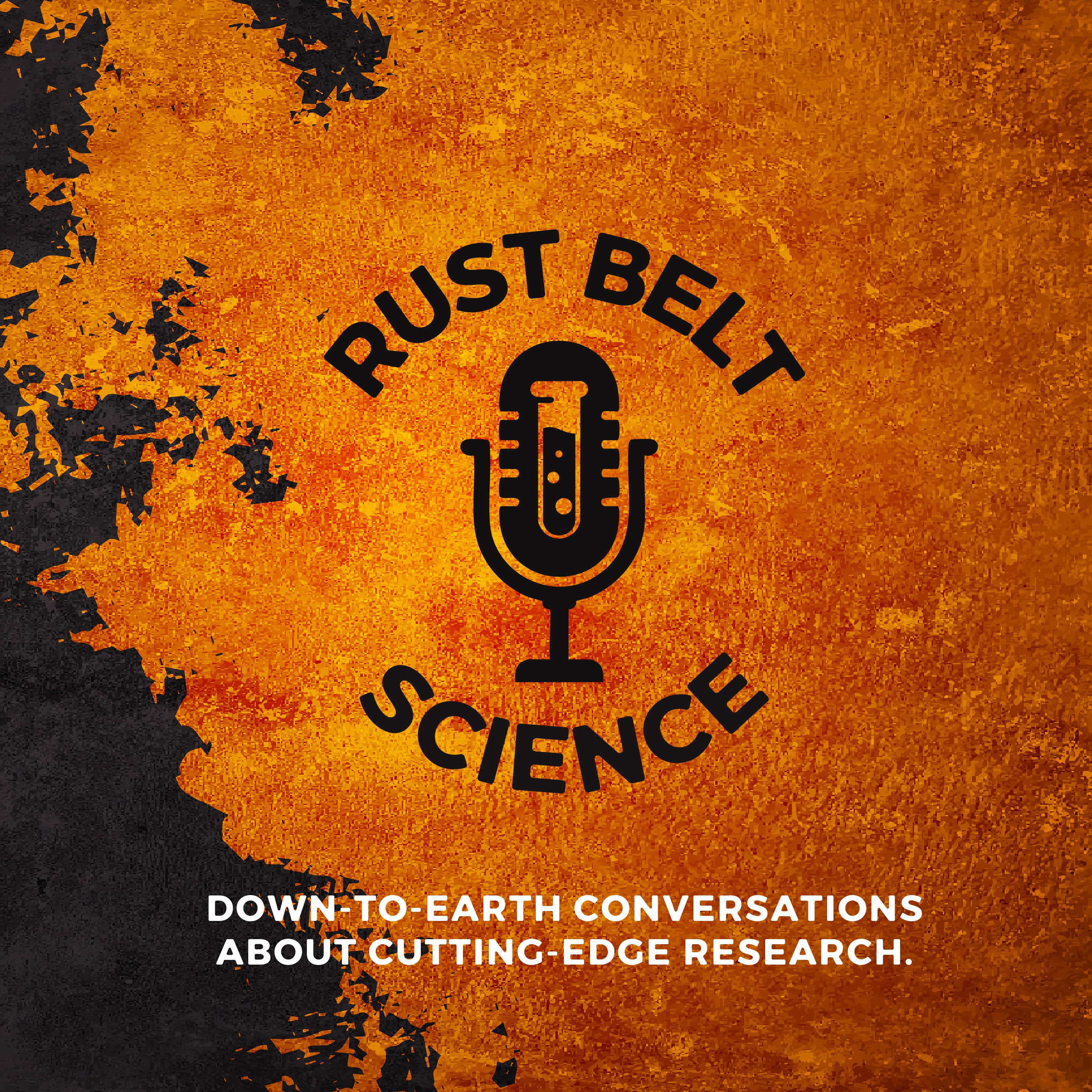 Rust Belt ScienceWelcome to Rust Belt Science!Meet the hosts • Bugs and Proteins • Science and Art • Making the right mistakes2024-12-1346 min
Rust Belt ScienceWelcome to Rust Belt Science!Meet the hosts • Bugs and Proteins • Science and Art • Making the right mistakes2024-12-1346 min